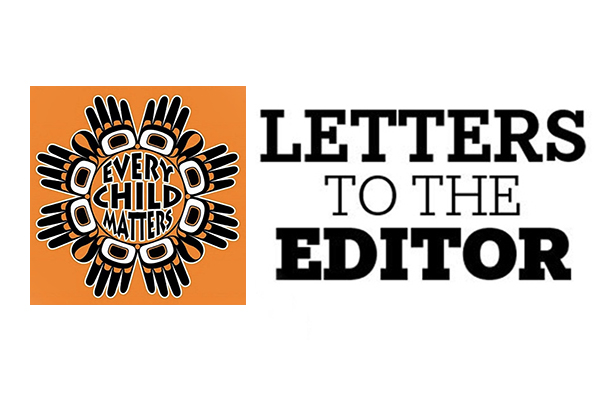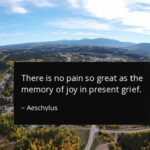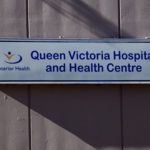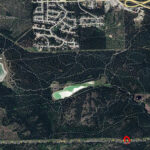Home »

We recommit to walking the path of truth and reconciliation
Letter to the Editor
Today, we remember the children who never returned home from residential school. We stand with the survivors of these depraved institutions and the survivors of the intergenerational trauma that started within their walls. We listen to survivors’ stories, we recognize their courage and strength, and we learn from their experiences. Together, we recommit to walking the path of truth and reconciliation.
The horrors of residential school have been well documented. From 1867 to 1996, the Canadian government forcibly removed more than 150,000 First Nations, Métis and Inuit children from their homes. They were separated from their families, communities and cultures. Many children endured years of physical, sexual and emotional abuse at the hands of those who were supposed to care for them.
These institutions still hold many unanswered questions for survivors, their families and their communities, as well as all Canadians. First Nations in B.C. are searching for missing children who died attending Indian Residential Schools and at Indian Hospitals. Our government supports them in this crucial and heartbreaking work. This is an important step on the path toward truth, healing and justice.
Yet as Indigenous Peoples, governments and allies continue to advance truth and reconciliation, a growing number of people seek to undermine those efforts by denying, downplaying or misrepresenting the basic facts about residential schools.
Our government denounces residential school denialism and recognizes the harm that it causes not only survivors, families and communities, but also all of us. The spread of misinformation about residential schools increases division among us and seeks to deny the very real experiences of former students and their families. We can’t get to a better future unless we acknowledge and learn from our past.
Our government is committed to addressing all forms of anti-Indigenous racism and continuing to work toward truth and reconciliation. These efforts include continuing to implement B.C.’s Declaration on the Rights of Indigenous Peoples Act and the Truth and Reconciliation Commission’s Calls to Action, amplifying and honouring the voices and advocacy of survivors, ensuring all K-12 students complete Indigenous-focused coursework before they graduate and addressing Indigenous-specific racism in our public policies, programs and services. We have more work to do, and we are committed to doing that work in true partnership with Indigenous Peoples.
Today, I encourage everyone to reflect on the legacy of residential schools and join the journey toward truth and reconciliation. There are many Indigenous-led events happening throughout the province that are open to everyone who wants to listen, learn and remember. You can also read, watch and listen to Indigenous-created content; support an Indigenous-owned business; talk to family, friends and coworkers about reconciliation; and wear an orange shirt to show that ‘every child matters.’ Together, we can build a brighter future for everyone rooted in truth and reconciliation. – David Eby
Spencer Chandra Herbert, Minister of Indigenous Relations and Reconciliation: We need to stand beside communities with empathy, sensitivity and an openness to further educate ourselves. On Sept. 30, and every day, we all have a responsibility to face the hard truths of reality, to listen to survivors and together, continue to build up reconciliation and a better future for all.
Support services are available:
A National Indian Residential School crisis line has been set up to provide support for former residential school students and others affected. Access emotional and crisis-referral services by calling the 24-hour national crisis line: 1 866 925-4419.
The KUU-US Crisis Line Society:
* Crisis services for Indigenous Peoples in B.C. are available 24 hours a day, seven days a week, toll-free throughout the province at 1 800 588-8717.
* Alternatively, individuals can call direct into the adult/Elders line at 250 723-4050 or the children/youth line at 250 723-2040.
* For information, visit: http://www.kuu-uscrisisline.com
Métis Crisis Line:
* A service provided by Métis Nation British Columbia is available 24 hours a day, seven days a week, toll-free throughout the province at 1-833-638-4722.
Premier David Eby and
Spencer Chandra Herbert, Minister of Indigenous Relations and Reconciliation







